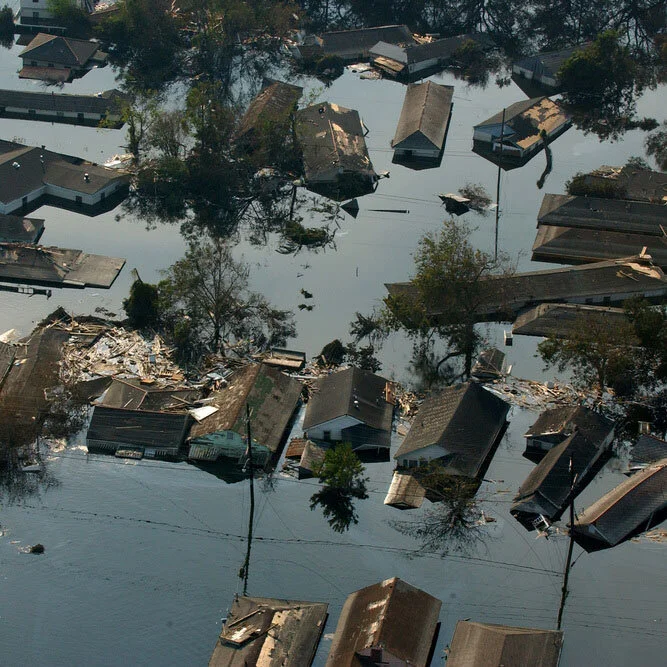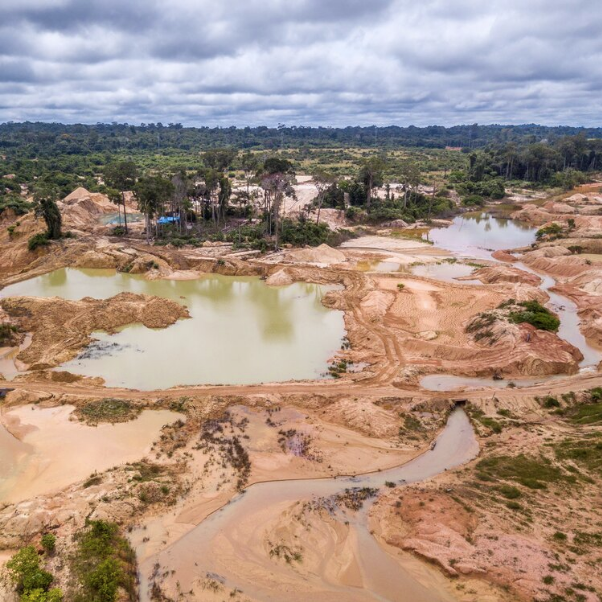Thea shares the connections between renewable energy development and state deployment of the military and police, the difference between extractivism versus extraction, and the ever-thorny question of whether or not it is possible to improve “wellbeing” under capitalism.
Read MoreLil Milagro highlights the absurdity that dominant education is not meant to equip young people with the kind of basic skills that would allow them to feel empowered about the future we are all aging into and discuss the importance of science, technology, engineering, arts, and mathematics rooted in ancestral knowledge.
Read MoreAndrea explores the tensions that exist between a human right and a commodity, water futures, pricing mechanisms, the fallacy of rationing and block pricing, and water scarcity. How do we distinguish the difference between commodity versus right?
Read MoreDr. Bevacqua discusses Guåhan’s incredibly layered history, as well as the CHamoru history that predates any colonial narrative by thousands of years. With an understanding of how Guåhan (Guam) ended up as a “territory” of the United States, Michael shares the current efforts to decolonize Guåhan and instill strong self-governance
Read MoreWe slow down to acknowledge the beauty and power of fungal decomposition with guest Giuliana Furci who shares a lesson in divine time, the transformation of energy, and the necessity of decomposition.
Gopal reminds us to think about the climate crisis as a message in which we are being asked to respond by tending to our all of relationships, not just reducing atmospheric concentrations of carbon dioxide.
Read MoreWe explore climate colonialism, reparations, carbon removal, and a real “just transition” with guest Olúfẹ́mi O. Táíwò. Our conversation reminds us that while climate colonialism is unfurling before us, there is a myriad of tangible ways countries and movements across the so-called global North could begin making reparations.
Read MoreCamille shares the role of mother trees in forest regeneration, how mycorrhizal networks are faring, and the ramifications of large scale reforestation and afforestation efforts when they are not implemented thoughtfully and locally. We also talk about disturbances to forest ecosystems, the role of mycorrhizal networks, and the unbelievable importance of peatlands.
Read MoreDr. Stafford has spent years listening to the sounds of climate change in the Arctic and learning how anthropogenic sounds, like ship propellers and oil and gas exploration, are changing marine mammals’ capacity to communicate.
Read MoreWe discuss parenting and caring in the Anthropocene, the connection between tourism and militarism, Guåhan’s layered history and his most recent book of eco-poetry Habitat Threshold, which intimately explores ancestry, ecological collapse and the ongoing legacy of capitalism, imperialism and colonization.
Read MoreJacqui reminds us that we must strategically address the needs of our communities; when we work to uplift those at the bottom - we all rise.
Read MoreAyana and Kyle discuss Kyle’s body of work on dystopia and fantasy in climate justice, the reproduction of settler structures, Indigenous science, vulnerability discourses, and “decolonizing allyship.” Kyle concludes with the ever present reminder that our work must be rooted in consent, reciprocity, and trust.
Read MoreJoin Ayana and Dr. Pierre as they oscillate between the importance of nitrogen, building the knowledge commons, the many new entry points that climate change necessitates, and the ways in which we can root ourselves in frameworks inspired by Earth.
Read MoreHeidi, Alicia, and Ayana break through the limits imposed by dominant languages, and invite radical freedom of expression to enrich our unique identities, experiences, our relationships with each other and with the earth.
Read MoreAyana and Corey discuss the implications of southern pine beetle expansion, how forest structures will shift, the threat to native biodiversity, the importance of cold winters, and how forestry measures are not the solution.
Read MoreExtinction Rebellion has become the biggest civil disobedience campaign in modern British history, taking over the peace movements of the 1980s. In this podcast, Ayana speaks with three core members of the mass movement, Extinction Rebellion, a response to governmental inaction towards our climate and ecological crisis.
Read MoreJames candidly speaks of the simultaneous beauty and horror of documenting the Anthropocene, on the complicity of industries like the arts and entertainment in contributing to fossil fuel emissions, and the importance of language and imagery in mobilizing climate momentum.
Read MoreAyana and Dr. Wagner discuss insects as biological controls, insect decline in relation to political and economic destabilization, how cultural understandings of insects influence the field of entomology, and the main drivers behind insect decline.
Read MoreLearn how glacial retreat is impacting communities, the connection between extractive tourism, extractive science, and glaciers, why it matters that the majority of glaciology has been produced by white men, and the ways in which polar and mountain explorations have furthered colonial, capitalist, and imperialist projects.
Read MoreDr. Nobre clarifies the complexities surrounding the driving factors of deforestation and savannization and discusses the margins of safety that must be implemented, the simultaneous rise of nationalism, and the possibility of a third way outside the realms of the preservation/consumption binary when it comes to Amazonia.
Read More



















